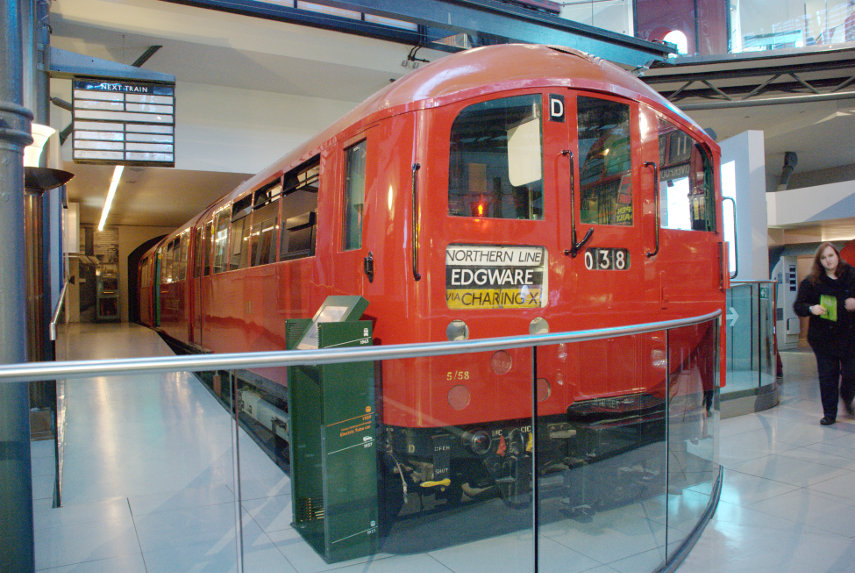
 DoneThat
DoneThat
Underground train exhibits, London Transport Museum , Covent Garden, London

A locomotive and rolling stock from the City & South London Railway. It was the first deep-level underground "tube" railway in the world and the first major railway to use electric traction. It opened in 1890 and had six stations on 3.2 miles of track in a pair of tunnels which passed under the River Thames to Stockwell. The diameter of the tunnels restricted the size of the trains and the small carriages with their high-backed seating were nicknamed padded cells. If you travel from Bank to London Bridge on the Northern Line you are travelling through those original tunnels.
| Comment |

This shows the rolling stock used on the City and South London Railway. These carriages had longitudinal bench seating and sliding doors at the ends, leading onto a platform for boarding and alighting.
It was reasoned that there was nothing to look at in the tunnels, so the only windows were in a narrow band high up in the carriage sides. Gate-men rode on the carriage platforms to operate the lattice gates and announce the station names to the passengers.
| Comment |

Metropolitan Railway electric locomotives, circa 1907, were used with conventional carriage stock. The locomotives were withdrawn from passenger service after electrification of the line to Amersham was completed in 1961.
| Comment |

An Underground train built around 1923 with what is known as a clerestory roof which contains small windows or ventilators.
| Comment |

The later,1938, rolling stock became a little more rounded.
The current Underground system carries approximately 1,230 million passengers each year and each Tube train travels 114,500 miles each year.
| Comment |